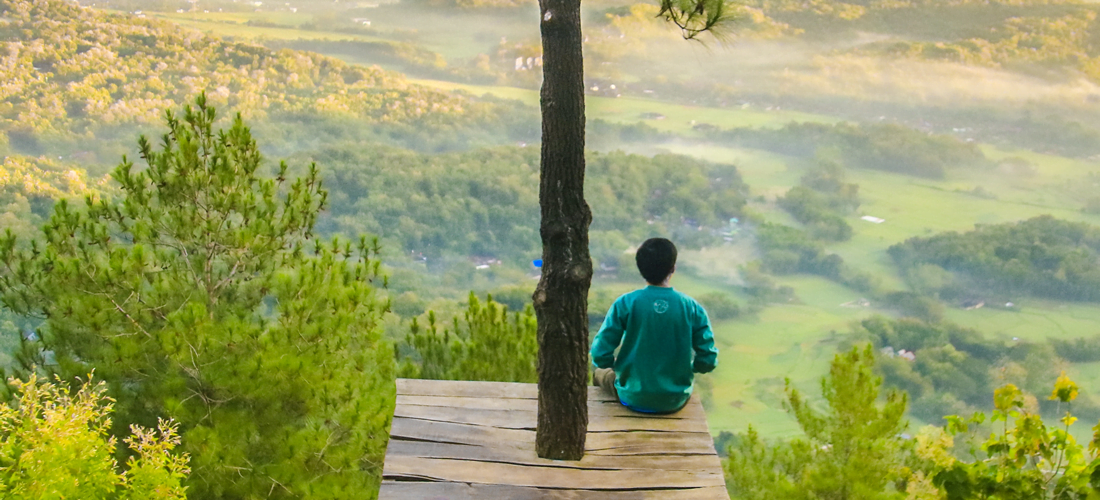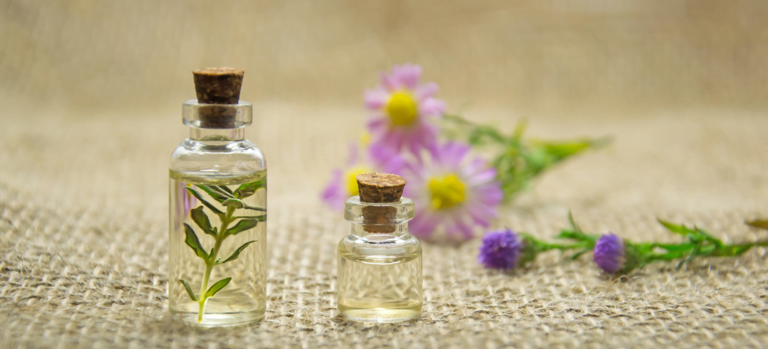Environmental self-care is the practice of deliberately creating a safe, healthy, and comfortable space for yourself. It is an important part of overall well-being, as it helps to reduce stressors and promote relaxation. This can include actively managing noise, lighting, temperature, smells, and air quality in the space you inhabit. It also means taking the time to recognize, and address, any unhealthy habits or physical clutter. Taking on a regular self-care practice that considers your environmental needs is essential for staying healthy in mind, body, and spirit.
Benefits of Environmental Self-Care
The role of environmental self-care in your overall well-being is significant. By incorporating eco-friendly habits and practices into your daily life, you not only contribute positively to the planet but also experience numerous personal benefits. Here’s how it plays a vital role in your well-being:
1. Physical Health
Engaging in activities like spending time in nature, walking or biking instead of driving, or practicing gardening can lead to increased physical activity. Regular exposure to green spaces can reduce stress, lower blood pressure, and boost your immune system, all of which contribute to improved physical health.
2. Mental Well-being
Being in nature or surrounded by a clean and organized environment can have a calming effect on your mind. It helps reduce feelings of anxiety, depression, and mental fatigue, leading to enhanced mental well-being and increased resilience to life’s challenges.
3. Stress Reduction
Engaging in eco-friendly activities such as recycling, reducing waste, or using sustainable products can give you a sense of purpose and control. This mindfulness about the environment can alleviate stress and help you feel more connected to something greater than yourself.
4. Connection to Nature
Caring for the environment fosters a deeper connection to nature and the world around you. This connection can provide a source of inspiration, creativity, and awe, which adds meaning and fulfillment to your life.
5. Social and Community Benefits
Embracing environmentally friendly practices can also create a sense of community and camaraderie with others who share similar values. Working together towards a common goal, such as preserving nature or fighting climate change, can strengthen your social bonds and improve your overall social well-being.
6. Sustainable Lifestyle
Practicing environmental self-care encourages you to adopt a sustainable lifestyle. Reducing your ecological footprint and being mindful of your consumption habits can contribute to a healthier planet, ensuring future generations can enjoy a thriving environment.
Incorporating environmental self-care into your life not only helps you live in harmony with nature but also enhances your overall well-being on physical, mental, and emotional levels. By being mindful of the environment and taking responsible actions, you contribute to a healthier planet and experience personal growth and fulfillment in the process.
Creating a Supportive Home Environment
The possibilities for environmental self-care are vast, but here are a few easy steps you can take to create a more personal space:
Declutter your space
Identify and remove items that are no longer useful or meaningful to you. This can help make a room feel less cramped, reduce feelings of anxiety, and promote productivity.
Utilize natural elements
Consider adding living plants, fresh flowers, and/or nature-inspired decor to your home or work environment. Not only do these elements help to boost mood-lifting endorphins, but they can also reduce air pollutants and improve air quality.
Incorporate nature sounds
A peaceful soundtrack of birds singing or a babbling brook can create an atmosphere of tranquility. Listening to natural sounds has been shown to reduce stress levels, as well as promote restful sleep.
Invest in quality materials
Taking the time to choose furniture and other items made of natural, eco-friendly materials can promote good air quality while also adding visual warmth and comfort.
Ultimately, environmental self-care is about creating an atmosphere that supports your mental well-being, and it takes effort to maintain. However, the rewards of a healthier home or workspace can be well worth it, both for your physical and mental health. So don’t be afraid to get creative and give yourself permission to make changes that will help you feel more connected with the natural world.
Embracing Nature for Mental Restoration
To embrace nature for mental restoration as part of your environmental self-care, follow these steps:
Find Green Spaces
Seek out nearby parks, nature reserves, or any green spaces that are easily accessible to you. Take regular walks, meditate, or simply sit quietly amidst nature. Being surrounded by trees, plants, and fresh air can have a calming effect on your mind.
Disconnect from Devices
When you’re in nature, try to disconnect from electronic devices as much as possible. Turn off your phone or put it on silent to avoid distractions. This allows you to fully immerse yourself in the natural environment and experience mental relaxation.
Practice Mindfulness
While in nature, practice mindfulness by focusing on your senses. Pay attention to the sounds of birds chirping, the scent of flowers, the feel of the grass beneath your feet, and the beauty of the scenery around you. Mindfulness helps to clear your mind and reduce stress.
Engage in Outdoor Activities
Participate in outdoor activities that you enjoy. It could be hiking, biking, picnicking, or birdwatching. Engaging in these activities not only promotes physical health but also provides a sense of enjoyment and mental rejuvenation.
Nature Journaling
Bring a notebook and pen with you to jot down your thoughts, feelings, and observations while in nature. Nature journaling allows you to reflect on your experiences and connect more deeply with the natural world.
Practice Breathing Exercises
Use your time in nature to practice deep breathing exercises. Inhale slowly and deeply, then exhale fully. Deep breathing helps to calm your nervous system and reduce anxiety.
Sunlight Exposure
Spend time outdoors in natural sunlight. Sunlight exposure boosts your mood and promotes the production of serotonin, a neurotransmitter that contributes to feelings of happiness and well-being.
Create a Nature Ritual
Establish a regular nature ritual in your daily or weekly routine. Whether it’s taking a morning walk in the park or having a nature-inspired tea time, having a ritual helps you prioritize nature-based mental restoration.
Forest Bathing
Consider practicing the Japanese concept of “Shinrin-yoku” or forest bathing. It involves immersing yourself in the forest atmosphere to experience the healing properties of nature.
Extend Nature Indoors
Bring elements of nature into your living space. Place indoor plants, flowers, or natural decorations to create a calming environment that reminds you of the beauty of the outdoors.
Remember, embracing nature for mental restoration is not just a one-time activity but an ongoing practice. Make time for regular nature breaks to recharge your mind, reduce stress, and foster a deeper connection with the environment as part of your environmental self-care routine.
Reducing Environmental Stressors
Reducing environmental stressors is one of the most important aspects of environmental self-care. Making small changes to your daily routine can have a large impact in reducing your environmental footprint. Here are some tips on how you can reduce environmental stressors:
Identify Stressors
Begin by identifying the environmental stressors in your daily life. These may include exposure to pollution, noise, clutter, or excessive artificial lighting. Understanding what causes you stress helps you target specific areas for improvement.
Limit Exposure to Pollution
Minimize your exposure to air and water pollution as much as possible. Avoid busy traffic areas, cigarette smoke, or any other sources of harmful pollutants. Use air purifiers at home if needed to improve indoor air quality.
Noise Reduction
Find ways to reduce noise pollution in your living space. Consider using earplugs, noise-canceling headphones, or playing soothing nature sounds to create a more peaceful environment.
Embrace Natural Lighting
Whenever possible, make use of natural lighting during the day. Open curtains and blinds to let sunlight in, as it can positively impact your mood and energy levels.
Limit Screen Time
Reduce your screen time and exposure to electronic devices. Set boundaries for yourself and take regular breaks from screens to avoid digital stressors.
By taking these steps to reduce environmental stressors, you can create a more nurturing and harmonious relationship with your surroundings. This, in turn, contributes to your overall well-being and supports your environmental self-care efforts.
Practicing Sustainable Living
Sustainable living is becoming increasingly important as our environment continues to be negatively impacted by human activities. Practicing sustainable living is a great way to become a part of the solution and practice environmental self-care. Here are some tips for getting started:
Reduce, Reuse, and Recycle
Start by reducing your consumption and waste. Reuse items whenever possible, such as reusable containers for food or shopping bags for groceries. Recycle plastic, paper, metal, glass, and other materials to help reduce the demand for new products that require resources from our already strained environment.
Choose Sustainable Products
Whenever possible, look for sustainable products that are made with recycled or renewable materials and have minimal packaging. This includes items like organic food, clothing made of natural fibers, and environmentally-friendly cleaning supplies.
Use Eco-Friendly Transportation
Try to use public transportation or walk/bike whenever possible instead of driving a car. Opt for carpooling when you do need to drive somewhere and make sure your vehicle is maintained properly to reduce emissions.
Conserve Energy
Make sure to turn off lights and unplug appliances when not in use. Investing in LED bulbs and energy-efficient appliances can also help reduce your energy consumption.
Support Local Businesses
Buying from locally owned businesses helps to support the local economy as well as reduce carbon emissions due to transportation and packaging.
Sustainable living can be an everyday lifestyle choice that helps protect the environment and make the world a better place for generations to come. By taking small steps, you can make a big impact!
The Role of Aesthetics in Environmental Self-Care
A visually appealing and harmonious environment contributes to your overall well-being. When you focus on aesthetics, you consciously design your surroundings to be beautiful, pleasing, and in tune with nature. Here’s how aesthetics can play a significant role in your environmental self-care:
Enhanced Relaxation
By surrounding yourself with aesthetically pleasing elements, such as calming colors and natural textures, you can create a relaxing atmosphere that helps you de-stress and unwind.
Improved Mood and Positivity
Beautiful aesthetics can uplift your mood and bring positivity to your daily life. The presence of art, plants, and meaningful decor can brighten your spirits and promote a more optimistic outlook.
Sense of Connection with Nature
Aesthetics can help you bring nature indoors or appreciate the natural world outside. Incorporating elements like indoor plants, nature-inspired art, or large windows to let in natural light can foster a stronger connection with the environment.
Mindfulness and Presence
Thoughtfully designed spaces encourage mindfulness and present-moment awareness. Paying attention to the aesthetics around you can anchor you to the present and promote a sense of gratitude.
Stimulation of the Senses
Beautiful environments engage your senses, stimulating your mind and sparking creativity. Sight, touch, and even smell are all positively impacted by pleasing aesthetics.
Personal Expression
Your living spaces reflect your personality and style. Aesthetics give you the opportunity to express yourself and create a space that feels uniquely yours, promoting a sense of comfort and belonging.
Inspiration and Creativity
Aesthetically pleasing environments can inspire creativity and innovative thinking. Being surrounded by beauty can fuel your imagination and lead to new ideas and solutions.
Encourages Mindful Consumption
Focusing on aesthetics may lead you to be more mindful of the items you bring into your space. Choosing quality, sustainable, and ethically-made products aligns with your environmental values.
Supports Relaxation Practices
Aesthetics can encourage you to engage in relaxation practices, such as meditation or yoga, by providing a serene and inviting space for these activities.
Promotes Well-Being
Ultimately, aesthetics contribute to your overall well-being. A beautiful and well-designed environment nurtures your mind, body, and soul, making you feel more balanced and at peace.
By prioritizing aesthetics in your environmental self-care, you actively create an environment that supports your physical and emotional well-being while fostering a deeper connection to nature. Consider incorporating elements of beauty, nature, and personal expression into your surroundings, as they can have a profound impact on your overall health and happiness.
Conclusion
Prioritizing environmental self-care in your life is a profound and transformative journey towards a more balanced and fulfilled existence. By adopting eco-friendly habits, embracing nature, and being mindful of your impact, you create a positive ripple effect that extends beyond yourself, influencing your community and the world at large. As you practice sustainable living, connect with nature, and surround yourself with aesthetics that nourish your soul, you’ll experience a deeper sense of purpose, peace, and well-being.
Environmental self-care is not a one-time effort; it’s an ongoing commitment to yourself and the planet. So, take those eco-friendly steps with confidence, embrace the beauty of nature, and let your actions inspire others to join this collective journey of healing and preservation.












